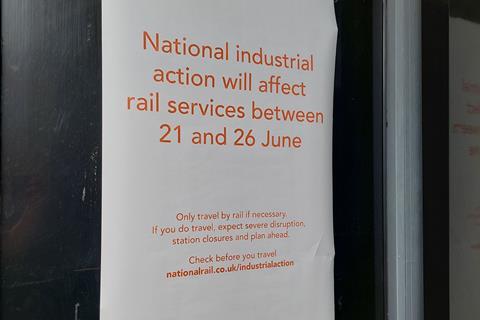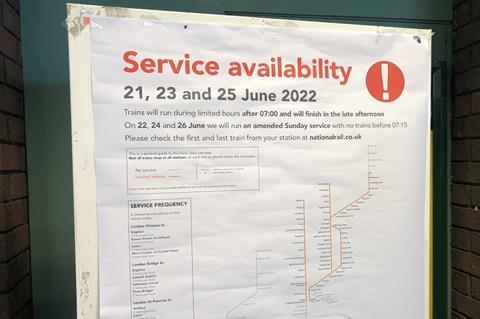
UK: Due to have its first reading on October 20, the Transport Strikes (Minimum Service Levels) Bill through which the government aims to ensure a minimum level of service is provided during industrial action has attracted criticism ranging from a free-market think tank to the Trades Union Congress.
The Department for Transport said the legislation would cover the entire transport sector. It would mean:
- a minimum service level must be in place during transport strikes, with unions losing legal protection from damages if this is not delivered;
- employers would specify the workforce required to meet an adequate service level during strikes and unions must take reasonable steps to ensure an appropriate number of specified workers would work on strike days;
- specified workers who still take strike action would lose their protection from automatic unfair dismissal.
Details of how the minimum service levels would apply is expected to be set out in secondary legislation.
The government’s intention is that employers and unions should agree a minimum service level to be provided during all strikes over a three-month period. If such a level cannot be agreed, an independent Central Arbitration Committee would determine the minimum number of services to be operated.
The legislation is expected to come into force in 2023; DfT said it follows similar rules in place in countries such as France and Spain.
Prime Minister Liz Truss said the legislation ‘delivers on our 2019 manifesto and will not only limit the unions’ ability to paralyse our economy, but will ensure passengers across the country can rightly continue to get to work, school or hospital’.
‘Unfair’ and ‘unworkable’

Labour’s Shadow Transport Secretary Louise Haigh said the plan was ‘unworkable’, and called on ministers to ‘get around the table and find a resolution to this dispute.’
Len Shackleton of free-market think tank the Institute of Economic Affairs described the bill as ‘a box-ticking exercise’ which was ‘likely to fall foul of a general election’.
Noting that ‘this bill has been promised for three years’, he added that ‘despite its general intention, it is still unclear how the obligation to provide a minimum service will be determined, how the conflicting needs of different groups of customers will be reconciled and how the plan will be proof against inevitable legal challenges.’
Shackleton felt that ‘even were this bill magically to achieve its objective in time for the next round of strikes, the public would not be satisfied with a 20% service, no doubt conducted by an unco-operative staff’.
Trades Union Congress General Secretary Frances O’Grady called the changes ‘unfair, unworkable and incompatible with our international commitments’.
The TSSA union said it would ‘fight tooth and nail’ against the legislation, which ‘follows months of travel disruption in which Train Operating Companies reported not having a government mandate to negotiate with unions, which led to wide scale industrial action over fair pay, jobs security and conditions’.
RMT General Secretary Mick Lynch called on ‘all workers in Britain to mount the fiercest civil resistance possible, in the proud traditions of the chartists and suffragettes’.
Mick Whelan of ASLEF said ‘train companies don’t want to run minimum service levels because they know it’s a stupid idea. What happens when 100% of passengers try to get on 40% minimum service level trains?’. He said ‘the government claims that similar legislation exists in other European countries, such as Germany, France, Italy and Spain. Yes, it does. But what the government doesn’t know — or doesn’t choose to say — is that it is not enforced. Because they know it doesn’t work.’



